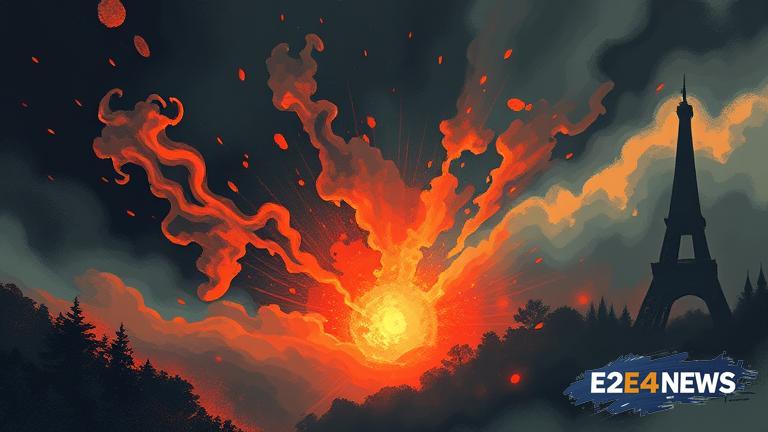France, a nation renowned for its rich history, cultural heritage, and romantic charm, is currently facing a crisis of unprecedented proportions. The country is experiencing a significant rise in violence, lawlessness, and civil unrest, which has left many questioning the leadership of President Emmanuel Macron. Despite his efforts to revamp the economy and boost France’s global standing, Macron seems to be turning a blind eye to the growing problem of decivilisation. The term ‘decivilisation’ refers to the breakdown of social norms, the erosion of trust in institutions, and the decline of civic values. In France, this phenomenon is manifesting in various forms, including increased crime rates, rioting, and a general sense of disorder. The streets of Paris, once a symbol of elegance and sophistication, are now often filled with the sound of shattering glass, the smell of tear gas, and the sight of masked protesters clashing with police. The situation has become so dire that many are wondering if France is on the brink of chaos. The root causes of this crisis are complex and multifaceted, involving factors such as poverty, unemployment, and social inequality. However, many critics argue that Macron’s policies have exacerbated the problem, particularly his handling of the Yellow Vest protests, which began in 2018 as a response to rising fuel prices but quickly evolved into a broader movement against the government. The protests, which have been marked by violence and destruction, have highlighted the deep-seated frustrations and resentments that exist within French society. Despite the government’s efforts to address the grievances of the protesters, the situation remains volatile, with many predicting that the unrest will continue to escalate. The consequences of this crisis are far-reaching, with potential implications for France’s economy, its relationships with other European countries, and its position on the global stage. As the situation continues to deteriorate, there are growing concerns about the impact on tourism, investment, and trade. The French people are also feeling the effects, with many reporting a sense of fear and anxiety about the future. The government’s response to the crisis has been widely criticised, with many arguing that Macron’s policies are too focused on maintaining order and not enough on addressing the underlying causes of the unrest. The opposition has been quick to capitalise on the situation, with many calling for Macron’s resignation and the establishment of a new government. As the crisis deepens, it remains to be seen whether Macron will be able to regain control and restore stability to the country. The international community is also watching with bated breath, aware that the situation in France has the potential to have far-reaching consequences. The European Union, in particular, is concerned about the impact on the bloc’s stability and cohesion. In recent years, France has been a key player in European affairs, and its instability could have a ripple effect on the entire continent. The United States, too, is monitoring the situation closely, aware that a destabilised France could have significant implications for global security and trade. As the world waits with bated breath to see how the situation in France will unfold, one thing is clear: the country is at a crossroads, and the choices it makes in the coming months will have a profound impact on its future. The French people are demanding change, and it remains to be seen whether Macron will be able to deliver. The clock is ticking, and the world is watching. The situation in France is a complex and multifaceted one, with no easy solutions. However, one thing is certain: the country needs a new approach, one that addresses the underlying causes of the unrest and provides a sense of hope and direction for the future. The French people deserve better, and it is up to their leaders to deliver. The fate of France hangs in the balance, and the world is waiting to see what the future holds.
